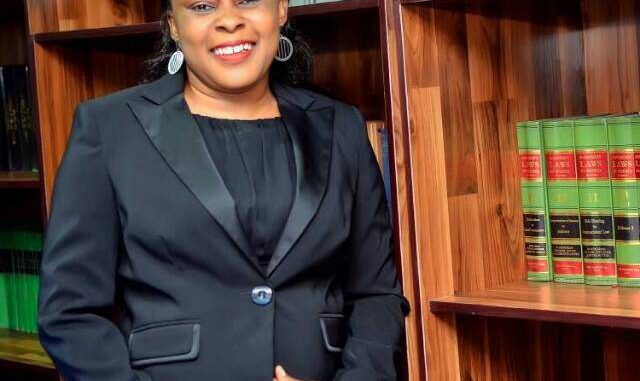
Language is the primary means of communication. Be it verbal or non-verbal. Language can take many forms, depending, largely, on location, ethnicity or tribe.
According to findings on Google, there are over 525 native languages across tribes or ethnic groups in Nigeria alone. A survey conducted in 2003 puts the English Language/Nigerian Pidgin as a second language spoken by over 60 million people. In Nigeria, we know that English, the language spoken by the former colonial British, is the official language.
In all of this, the indigenous language or mother tongue is fast going into extinction. Have you ever wondered why, inspite of the healthy and heavy Yoruba or Igbo or Hausa or other languages we communicated with while growing up, majority of us still passed English; many in flying colours and many can communicate fluently in the English Language. Our parents must have done something right.
Yet today, we impose English on our children. Many are regretting this after the kids are grown and can’t identify fully with their roots. Some forbid the mother tongue, not even to greet in the morning.
I am aware that some Igbo friends that I have speak flawless Igbo as they do Yoruba and English. Same also applies to some Hausa friends.
In my opinion, I think Yoruba parents are most guilty of not teaching their children the beauty of the language. Curiously, many of those children can’t speak in flawless English, just as they can’t even speak passable Yoruba. As a result, what we have is a mishmash of unhealthy pronunciations and tenses.
Yoruba was compulsory way back in secondary school…and in primary schools. Our introduction to Yoruba in the primary school was aided by Alawiye, Iwe Kinni. This book was authored by Alàgbà Joseph Folorunso Odunjo.
In the secondary school, we had interesting teachers…some students didn’t pay attention and were not bothered but many of us enjoyed the subject. However, my mummy, having given us a diet of Ólekú by Professor Akinwunmi Ishola, Ìtàn Efúnsetán Iyalode Ìbàdàn, also authored by Ishola, Olúwa ló m’ejo da by Afolabi Olabimitan, Àjà lo Leru by Alagba Oladejo Okediji, Ogboju Ode N’inu Igbó Irunmole by D.O. Fagunwa, it is compulsory you aced Yoruba. At a young age, I knew tonal sounds and syllables to an appreciable extent.
In the secondary school, we communicated in English and Yoruba. Today, in schools, local languages are banned and there is a dearth of Yoruba teachers in schools, possibly due to lack of qualified teachers and lack of incentive to learn.
The Yoruba Language is the medium of communication, language and custom in the South-West and it is quite a tough language in Linguistics. How often have we sneered at students of the language, forgetting that it is one language that can get its learners faster to international frontiers than other subjects would?
Many prominent Yoruba communicators and teachers with full grasp of its knowledge and who promote its culture are representing us internationally.
We have examples of Professor Wande Abimbola, the late Professot Akinwunmi Ishola, the late Alagba Adebayo Faleti, Araba Ifayemi Elebuibon, Chief Nike Okundaye, Professor Ulli Beier and the late Chief Susan Wenger, the latter being a promoter of Yoruba art and culture and an Osun priestess before her death. Beier and Wenger were non-Nigerians. All these people, among others, have continued to promote and advance the knowledge of Yoruba on the world stage.
Back home, there is now a deep need for excellent communicators in Yoruba Language, especially in media houses, for the translation of news, news analysis and translation of newspaper reviews.
In schools, the learning of Yoruba should be reintroduced and made compulsory. For example, in the days of yore, a public primary school employed a Yoruba teacher. In order to get the pupils
interested, she dressed in the traditional way anytime she had to teach the arm of classes.
The teacher taught Primary 4,5 and 6 arms. She sat in the middle of the class arranged like a village square and engaged the children in phonetics, grammar, culture, tradition and folklore.
What happened?
At the end of each session, the pupils excelled in other subjects and it was discovered that the understanding of the mother tongue greatly improved their overall performance in other subjects. On the Prize-giving Day, children were happily picking prizes and parents were excited. That is how influential the mother tongue is.
Besides, learning the mother tongue can be life saving. It is possible to understand the language if any possible harm is being planned using the native tongue.
The advantages are multi-faceted.
Yoruba Language should not been seen as dirty and should not be considered vernacular. English may be the official language, but the official language at home should be the mother tongue.
Till this day, I regret not focusing on speaking my dialect with my mum. She speaks fluent Apoi, Ìlàje, Ìkálè, Ondo, Ile Oluji, smattering Urhobo (which her father discouraged her from learning) and the central Yoruba, aside English and pidgin.
The knowledge of the language and culture of one’s tribe is the foundation for a whole child, a balanced adult and a nation that is healthy, inspite of its ethnic diversity.

Leave a Reply